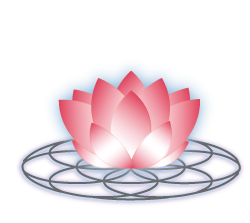When it comes to breastfeeding, everyone has an opinion, and everyone thinks their way is correct. It doesn't help that the information found on the internet is often contradictory, and that physicians, nurses, and lactation consultants have a difficult time agreeing if a baby has a tongue tie or not. So how does this leave mothers? Confused. Very confused.
In the clinic, there is a number of moms that book appointments to have all of their questions and concerns addressed. To have someone they've met and trust answer questions, give tips on how to help with breastfeeding is very relieving.
I've learned several things from my amazing mentor, Janet Regts RN IBCLC, being at the clinic, here is a few Do's and Don'ts when it comes to breastfeeding:
Don't judge yourself
As women, we tend to judge ourselves harshly. Now add a baby, and you judge yourself 10x harder. There's no need to add undue pressure on yourself to be the perfect mother and wife. Do the best that you can, and trust that it is good enough. If that means you have to feed your baby formula so he is gaining weight while you work on increasing your milk supply, then feed your baby formula. If you give your baby a few bottles of formula to give yourself a break, then do it. What is important is that you and your baby are in a happy and healthy relationship, and if that means you are adding formula, then it's fine.
Don't be pressured to do something you don't feel is right
It seems like everyone is judging mothers. What are they feeding their baby, how they're raising their baby, are they coddling their baby? If someone advises something to you, and it doesn't feel right, then don't follow it. You have the best interests in mind for your baby, and if that means you want to go the natural root and not take medication to increase your milk supply, then go for it. Make this breastfeeding journey what you want it to be, and remember there is always support for you.
Don't limit yourself
If your goal is to breastfeed for x number of months, and you are determined to do it, you should be able to do it without having painful breasts and/or nipples. There are treatments and different strategies that can help you accomplish that. But if you refuse to hear the options, then you will have a more difficult time accomplishing that goal, and may quit before reaching it. As with anything in life, you'll have to weigh the pros and the cons, and decide which route you want to go, but you have an open mind so you can see both sides.
Do trust in yourself
Women's bodies are amazing. We can create and give birth to life, and we can sustain that life solely on breastmilk - which our bodies make! You trusted your body to create your baby. You worked with and trusted your body to give birth to your baby (either through natural means or a cesarean birth), and you can do the same thing with breastfeeding. Trust yourself and your body. You know what to do. There's no need to stress about it. You have people making sure that your baby is growing accordingly. Feed your baby, and have confidence in your ability to care for them.
Do seek assistance when you need it
You should never have to be by yourself when working out something difficult. This goes for your health as well as breastfeeding. Everyone needs support, and encouragement. Find someone to help you through these difficulties. There are La Leche League meetings all over Canada to support mothers breastfeed. These are groups of mothers who talk about their hardships and get support from their Leader and their fellow mothers. Lactation Consultants (LC)are knowledgeable and specialized in helping mothers with any breastfeeding difficulty they may have. La Leche League Leaders will often recommend seeing an LC if your concern requires more knowledge and/or understanding. You are not alone. There are people that want to help support you and know what you are going through.
Do find what works for you
There's a saying in the clinic that is often said: "As long as baby poops, pees and gains weight, whatever you are doing is perfect." Every feeding situation is different for every mother and baby, don't be hard on yourself. You are doing everything you can to make sure your baby grows up healthy. If your feeding your baby a mixture of your breastmilk and formula, and both you and baby are happy, that's 100% perfect for you.
- Dr. Charmagne

